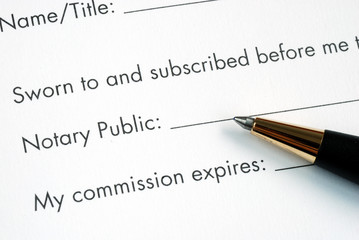
Excerpt: A sworn statement is a crucial legal document that serves as a verified declaration of facts. It is often required in legal, financial, and administrative proceedings. Understanding when and why you need one can help you navigate legal scenarios efficiently, especially in Nepal, where notarized affidavits play a significant role in formal processes. This guide covers everything you need to know about sworn statements, their uses, legal requirements, and how to ensure their validity.
What Is a Sworn Statement?
A sworn statement is a written document in which an individual (the affiant) confirms the truth of their statement under oath. Unlike casual declarations, this document is legally binding and can be used as evidence in legal matters. In Nepal, sworn statements are often notarized by an authorized notary public to enhance their credibility and admissibility.
When Do You Need a Sworn Statement?
Sworn statements are required in various legal and administrative scenarios. Here are some common situations where you might need one:
1. Legal Proceedings
- Courts may require sworn statements as evidence in both civil and criminal cases.
- They support claims, disputes, or testimonies.
- Affidavits and sworn statements are crucial in family law cases, such as child custody or divorce settlements.
2. Business and Financial Transactions
- Banks may request sworn statements confirming financial status for loan applications.
- Business contracts often include sworn statements to authenticate agreements or verify the identity of signatories.
- Companies use sworn declarations for financial reporting, tax filings, and compliance with regulatory bodies.
3. Immigration and Visa Applications
- Visa applications may require sworn statements to confirm personal details, employment history, or sponsorship.
- Immigration authorities may request affidavits for family reunification or asylum cases.
4. Property and Real Estate Transactions
- Buyers and sellers often need sworn statements to validate ownership rights and claims.
- A sworn statement may be required when dealing with disputed property titles.
5. Insurance and Claims Processing
- Insurance companies require sworn statements when processing claims for damages, theft, or loss.
- A claimant may need to submit a sworn affidavit verifying the circumstances of an incident.
6. Government and Administrative Procedures
- Sworn statements are often required for name changes, legal guardianship, and inheritance matters.
- Authorities may request affidavits to verify eligibility for government grants or benefits.
Legal Validity of Sworn Statements in Nepal
In Nepal, sworn statements gain legal recognition when properly notarized. The Notary Public Act, 2063 (2006) governs document notarization and outlines the legal obligations of a notary public. A valid sworn statement in Nepal must:
- Be signed by the declarant in the presence of a notary public.
- Include a statement that the information provided is true to the best of the affiant’s knowledge.
- Contain the notary’s seal and signature for authentication.
For more details on Nepalese notarization standards, visit Notary Sewa.
How to Draft a Legally Sound Sworn Statement
To ensure the accuracy and legality of your sworn statement, follow these steps:
- Title the Document – Clearly state that it is a sworn statement or affidavit.
- Identify the Affiant – Include the full name, address, and other relevant details.
- State the Facts Clearly – Provide a detailed and truthful account of the relevant information.
- Sign Before a Notary – Sign the document only in the presence of a notary public.
- Obtain Notarization – Ensure the notary public signs and stamps the document to validate its authenticity.
For expert tips on drafting legal affidavits, check out this guide.
Consequences of False Sworn Statements
Providing false information in a sworn statement is considered perjury, which carries legal penalties in Nepal. As per Section 295 of the Nepal Penal Code, submitting false affidavits or declarations can result in fines or imprisonment. Read more on the consequences of false affidavits here.
Where to Get a Sworn Statement Notarized in Nepal
Several services in Nepal offer notarization, including:
- Notary Public Offices – Official government-appointed locations for document verification.
- Law Firms – Many legal professionals provide notarization services.
- Online Notarization Services – Platforms like Notary Sewa offer digital and in-person notarization.
For comprehensive notarization services, visit Notary Sewa’s service page.
Related Services and Additional Resources
- Documents Notarization
- Powers of Attorney
- Certification of Legal Documents
- Witnessing Signatures
- Wills and Testament Notarization
- Court Documents Notarization
For additional reading, explore these resources:
- Understanding Apostille vs. Notarization
- How Document Notarization Protects Against Fraud
- Understanding the Legal Weight of Notarized Affidavits in Court
Final Thoughts
Sworn statements play a vital role in legal and official matters, ensuring that facts are presented accurately and responsibly. Whether dealing with court cases, financial transactions, or personal legal matters, understanding the importance of sworn statements and properly authenticating them can prevent legal complications. Always ensure your sworn statements are notarized and legally compliant to maximize their validity and acceptance.
